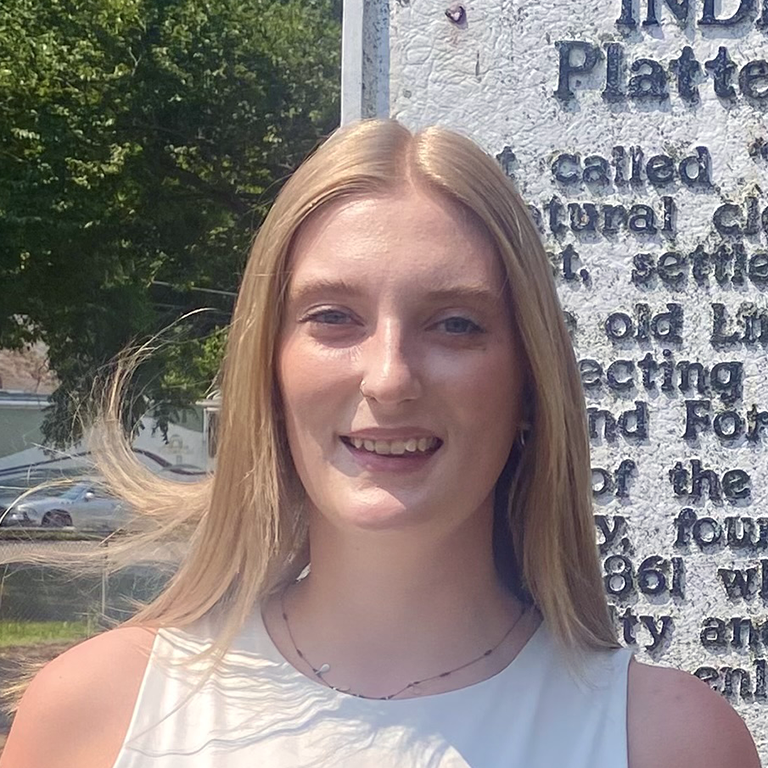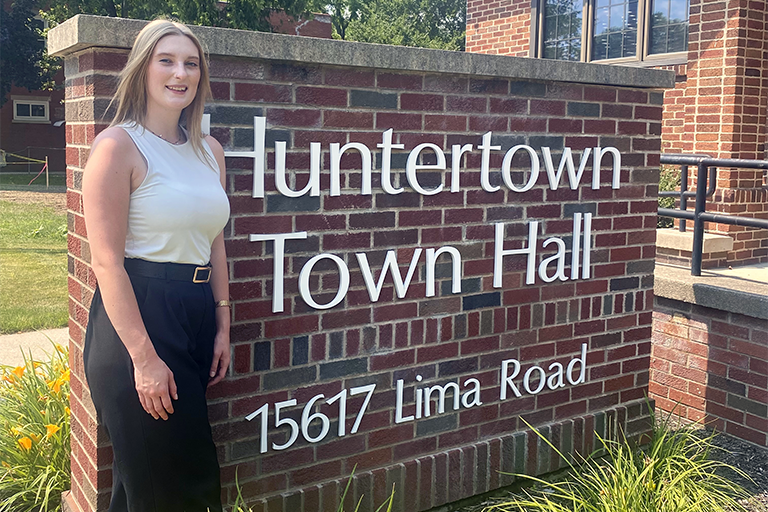This Q&A series highlights McKinney Climate Fellows alumni and their professional journeys within Indiana and beyond. The McKinney Climate Fellows program, administered by Indiana University’s Environmental Resilience Institute and Integrated Program in the Environment, connects IU undergraduate and graduate students interested in climate, sustainability, and community resilience with career experiences.
Hannah Walker didn’t major in sustainability or an environmental field, but through McKinney Climate Fellows she was able to contribute to the City of Fort Wayne’s sustainability goals and deepen her understanding of local government.
That experience proved invaluable as Walker returned to her hometown of Huntertown, Ind. after graduation to serve as the town manager. Now, she’s applying her sustainability knowledge and skills to lead her community.
The following interview has been lightly edited for length and clarity.
What were the major projects that you worked on as a McKinney Climate Fellow for the City of Fort Wayne?
I was with the Energy and Sustainability teams of City Utilities. They manage all of the water, wastewater, and stormwater for the City of Fort Wayne, as well as the surrounding areas.
I spent the primary portion of my time with the Grease Cooperative. It was a brand new program that enrolled area restaurants to pump out their grease interceptors, where all their grease goes to when they cook. They take that grease over to the wastewater plant and then use the process of anaerobic digestion to produce methane, which powers the plant with low emissions. My role involved a lot of public outreach, both to restaurants to get them to enroll and then to the public to inform them of what the city was doing to create a more sustainable path for water treatment.
I also worked a lot with the stormwater department, updating a lot of their existing manuals and doing a lot of work with better management practices for stormwater use.
What do you like about your current position?
I like that every day is different. There's no shortage of things to do and things to learn. Huntertown is a growing community that is facing a lot of unique challenges, which I find really engaging. There's a different avenue for all my interests. I work with the legal side of things, with residents and community organizations, and with utilities, which I find personally and professionally interesting.
How did the McKinney Climate Fellows program prepare you for your current role?
I came in very green. I took a lot of classes on sustainability and had a lot of personal interest in it, but I’d never really worked with it, especially in the administrative public municipal setting, which now very much helps me in my job.
I think my biggest takeaway was how utilities work. From the customer standpoint, you turn the tap on and water comes out and everything's fine, but the placement taught me all the inner workings of that as well as how to approach that in a sustainable way.
I don't think I could be doing the work that I'm doing at the level I'm doing it if I didn't have that Climate Fellow background. There's a lot of emphasis on preparedness and training. We did a day camp specifically with GIS (geographic information system) software. Those practical tools, like map creating and looking at algorithms and processes at a higher level, are so important to my job. I was able to create those connections at City Utilities and learn practical skills that I'm now able to implement in my current job.




